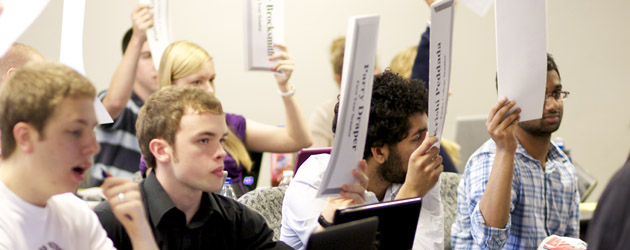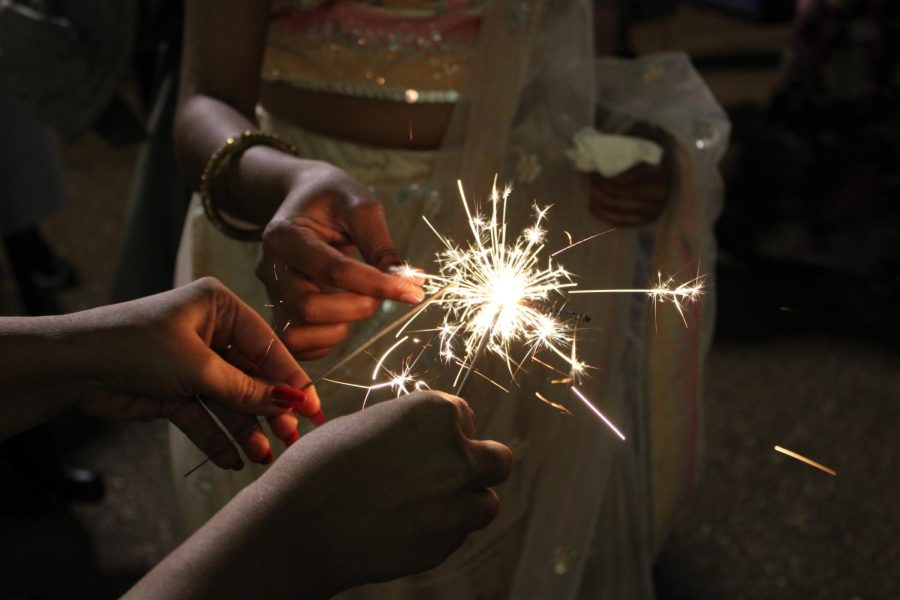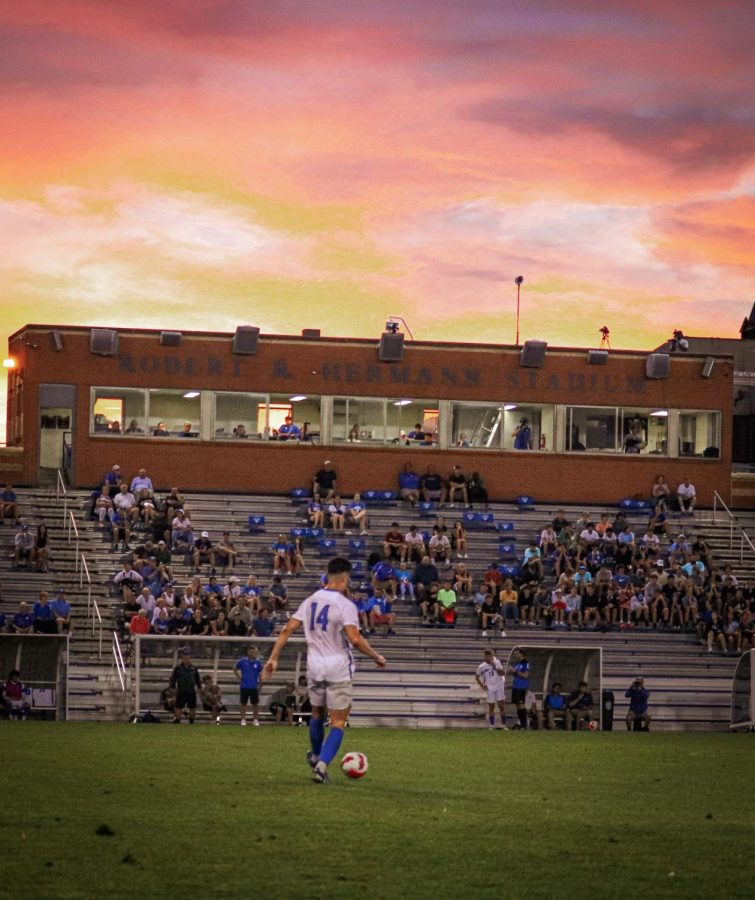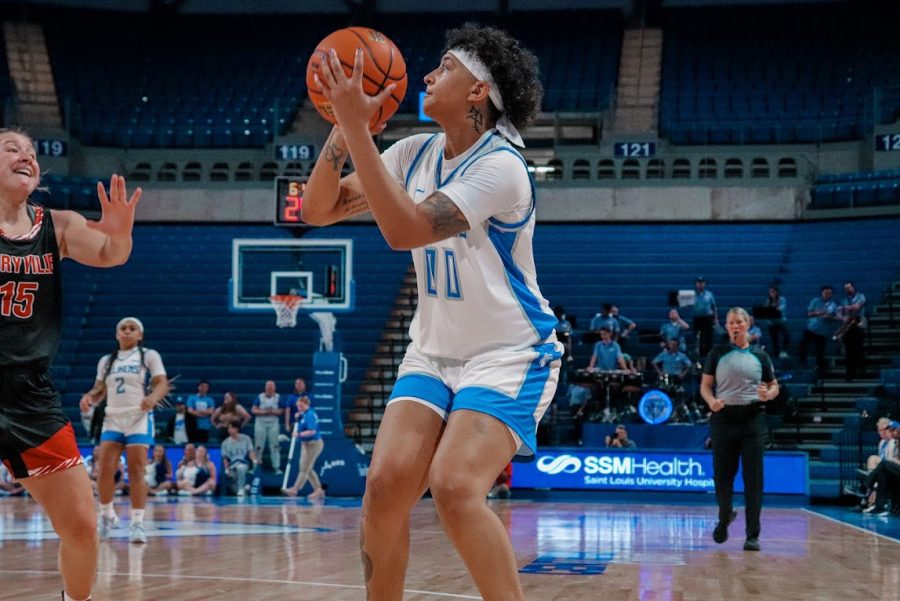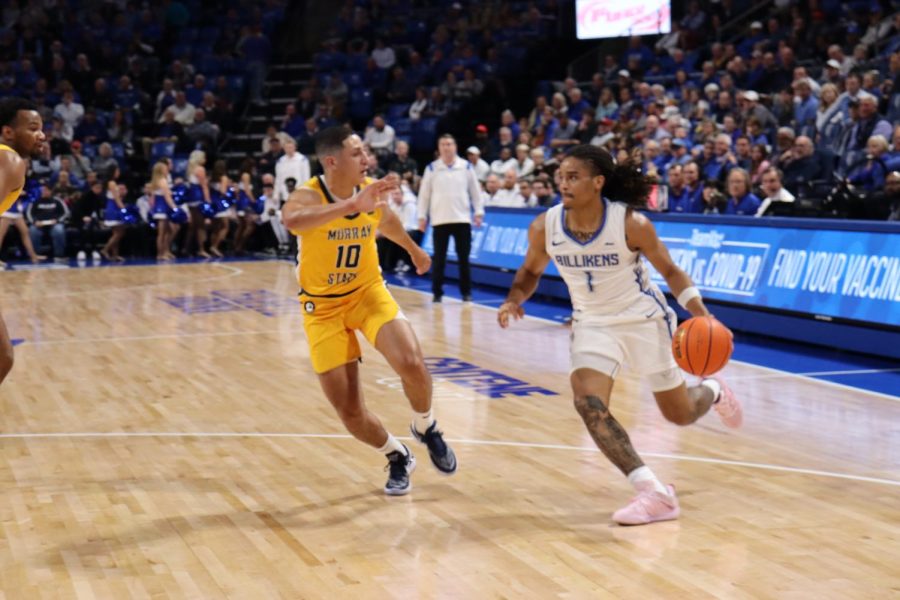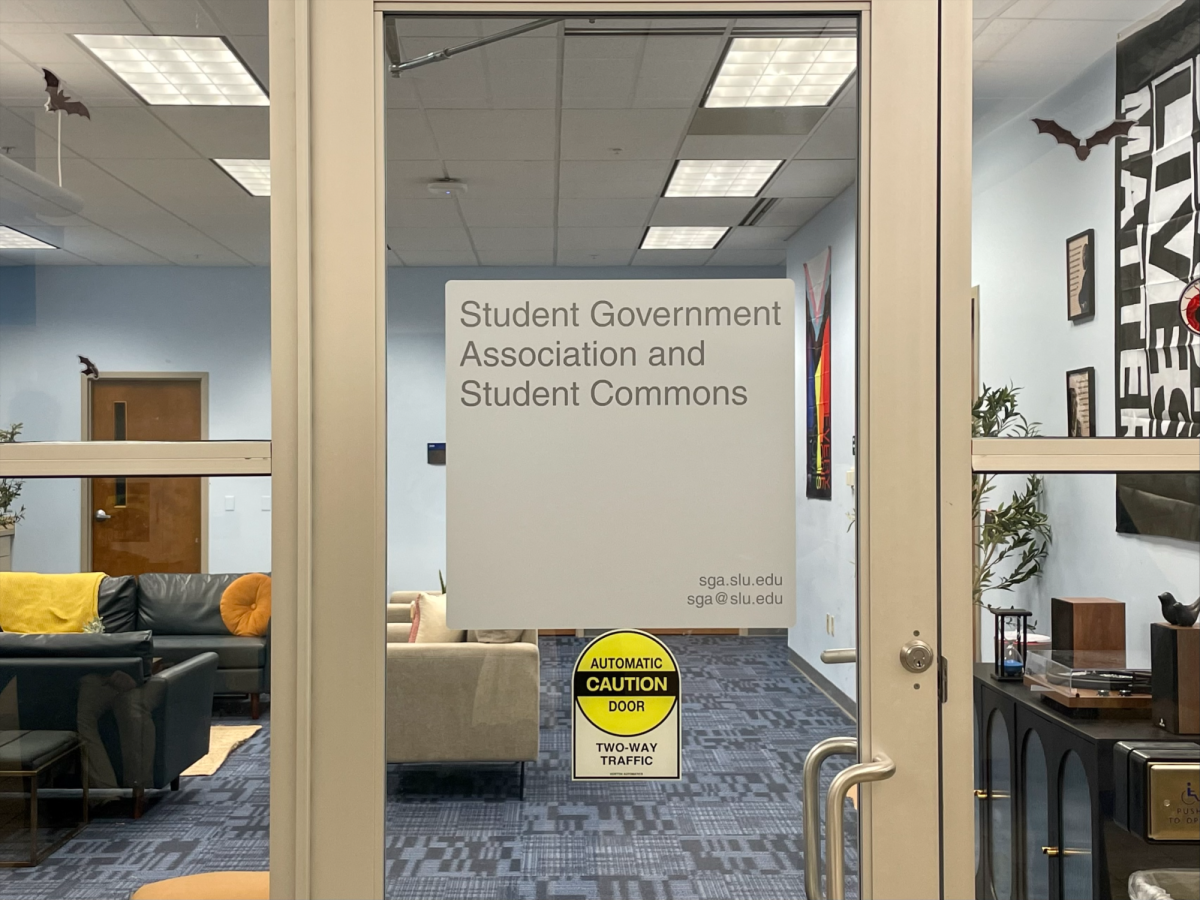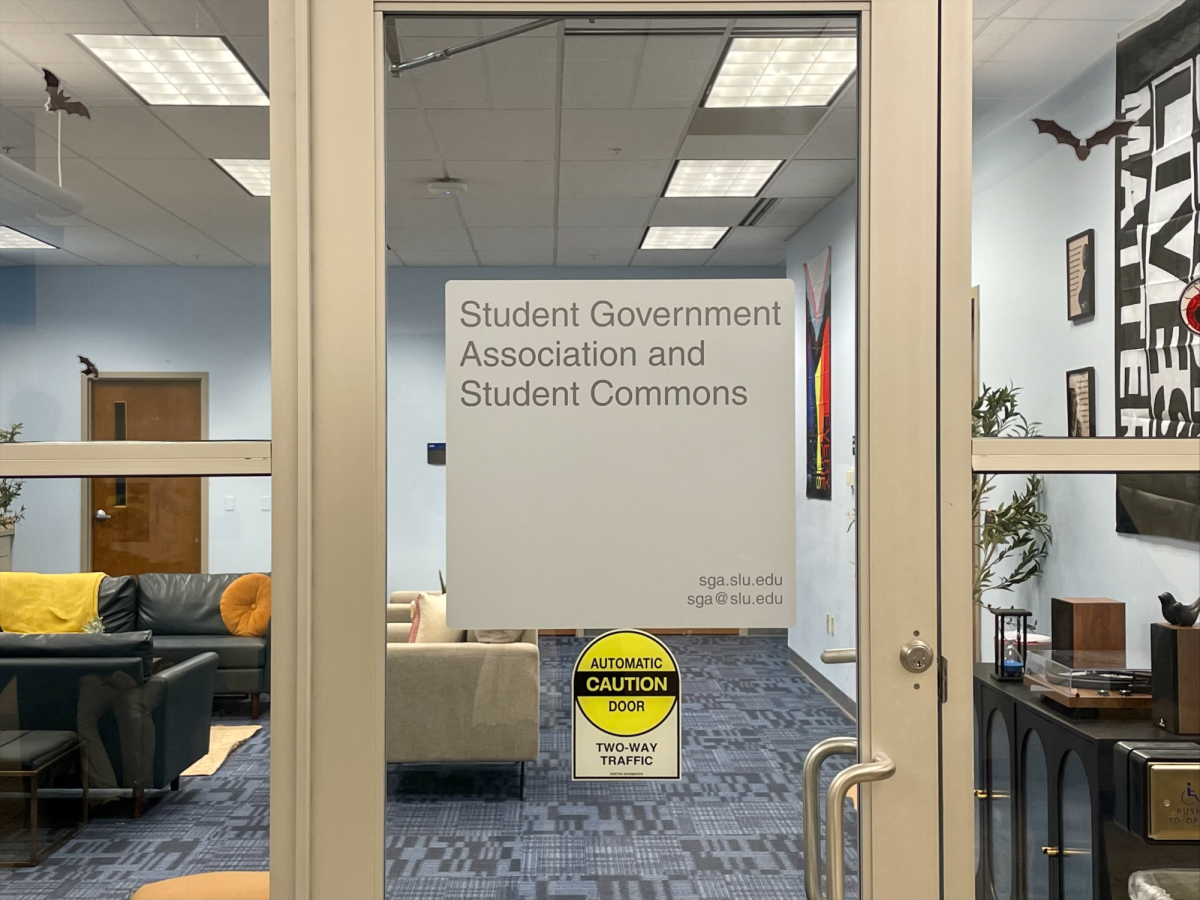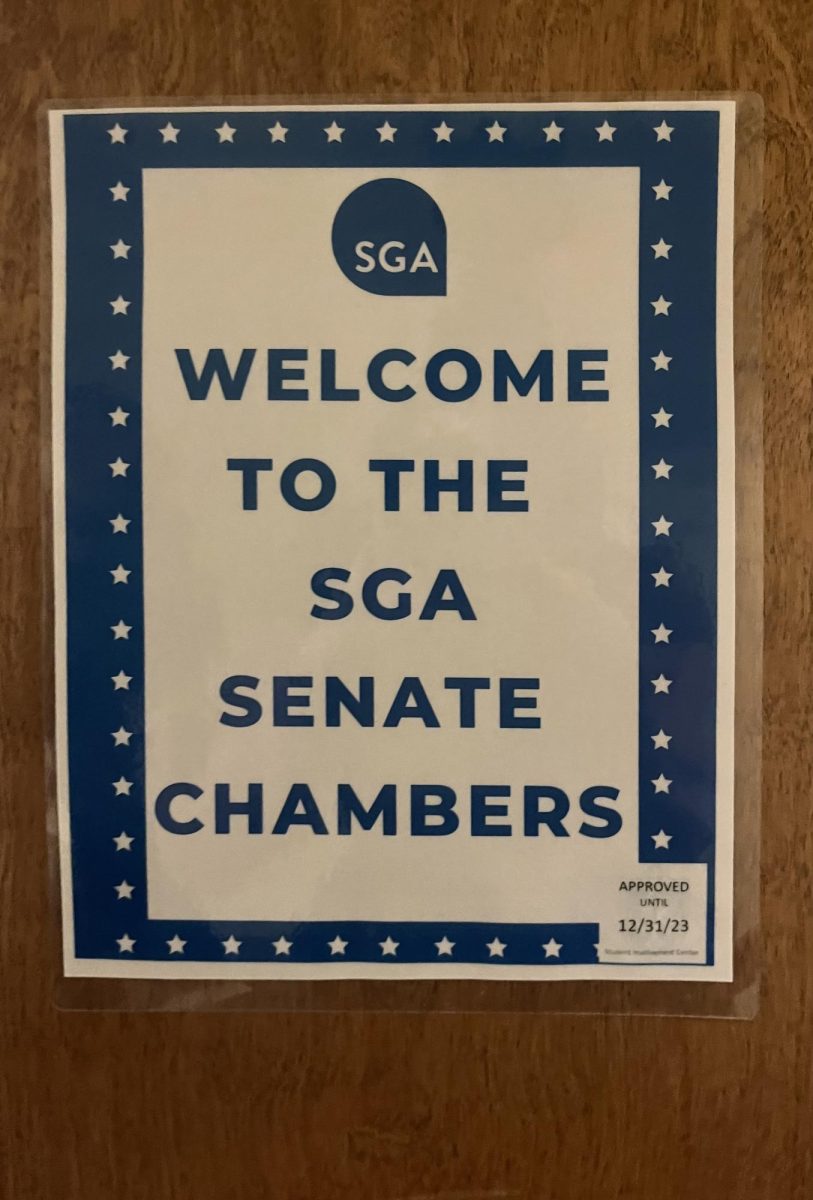Activity fee: Distribution explained
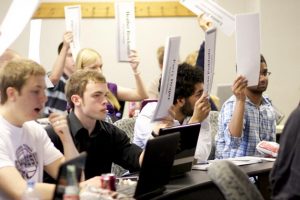
This year students had a new way to keep up with Student Government Association’s annual funding appeals meeting: Twitter. Throughout the day on Saturday, April 9, 28 Chartered Student Organizations (CSOs) presented appeals to senate as part of the annual funding process, and students were able to follow the allocations given to each group through Twitter.
College of Arts & Sciences Senator Jimmy Meiners said using Twitter to provide updates allowed SGA to interact with more students during the funding process.
“I’m a big believer in transparency; we should show [funding is] a process, it’s not just random,” Meiners said.
Along with the usage of social media updates, this year’s annual funding appeals meeting differed from years past because it was held on a Saturday instead of Wednesday after the regular senate meeting.
“Last year, groups were staying until 3:00 in the morning, and I don’t think it’s fair to ask that,” SGA President Courtney Anvender said.
The annual funding appeals meeting signals the end of the annual funding process SGA goes through each year.
Undergraduate students pay a $45 per semester Student Activity Fee, and the funds are allocated to student organizations by SGA through the funding process.
According to SGA Financial Vice President Tim Janczewski, this year’s funding process began on Feb. 8 and 10 with funding meetings with all CSOs. During these meetings, the SGA finance committee described the funding process and set up deadlines for turning in budgets. CSOs had over a month to organize a budget and submit it to an online finance panel system by March 14.
When submitting a budget, CSOs had to include a list of requested items, a description of each item, cost of the items and the amount the group is asking to be allocated from the Student Activity Fee.
“[Groups] have to cover the whole year with their budget,” Janczewski said.
CSOs then have the option to meet with members of the finance committee to go over their budgets. Members of the finance committee spent more than 70 hours over two weekends in hearings reviewing the budgets of 120 CSOs.
“We would go through every single item, look at what is the money going to and ask, ‘can you give us a cost breakdown to the dollar amount to what your request represents,’” Janczewski said.
Anvender said the finance committee uses these hearings to bring up CSOs’ previous budgets and go over past events to see how past allocations were used.
Finance committee then decides on a recommended budget for each group, based on their past budgets and the information gathered during the hearings. Groups can view their budgets online, and if they disagree with finance committee’s recommendation, they can submit an appeal budget. These appeals are then heard by the entire senate.
In appeals, the group has to convince the entire senate that their budget item deserves the money and also that the recommendation of finance committee is wrong.
“It’s tougher to go through appeals than go through hearings, but at least that opportunity is there,” Janczewski said.
This year, 28 CSOs presented appeals, and 14 of the groups were allocated appeals totaling $16,146.25. Some groups also had the opportunity to present additional appeals during the April 13 SGA meeting. Janczewski said this process is an appeal of the decision senate made during the appeals meeting on April 9. The bill must be brought up for reconsideration by a senator who originally voted in the majority and can only be passed with a two-thirds vote.
Senate allocated five CSOs a total of $13,124 during the appeals process on April 13, for a total appeals allocation of $29,269.59, according to Janczewski.
According to Janczewski, the Student Activity Fee was established to fund CSOs, and they can spend every penny of it, but not more. “At the core of the Fee, the one thing to remember is it’s not a limitless amount,” he said.
This year, the requests from CSOs were totaled $1.2 million, and Janczewski said SGA could only allocate around $800,000.
“In the larger sense, [cuts are] nothing personal or individual to any group; it’s the need to not spend more than we’re given,” Janczewski said.
Cuts made by the finance committee are determined by the annual funding guidelines, which are passed by the entire senate. The guidelines are available on SGA’s website and include lists of non-funded items and additional directives for the funding process.
During this year’s appeals meeting, many groups appealed for money to cover conference costs. Finance committee is charged with deciding if a budget request is a due or undue burden on the Student Activity Fee and applying these guidelines fairly to all CSOs.
Conferences and other activities are deemed more of an individual expense, and Janczewski said these activities are less likely to be funded than an activity that is more openly available to all students.
“We were looking for groups to show us there is a benefit they’re bringing back and that the benefit wasn’t just staying with those members going to the conference,” Janczewski said.
Janczewski said around $200,000 of the Student Activity Fee is allocated to CSO conferences and retreats and more than $400,000 is allocated to programming and other events. “Those are the events that really do have the ability to impact the most students at once,” he said.
Money from the Student Activity Fee is not only allocated to annual funding. A portion is set aside for spot funding, which allows groups to make requests for items that were unforeseeable during annual funding. Anvender said groups can also request new charter funding, which is a start-up fund for a new group that funds the group until they are able to submit an annual budget.
Meiners, who serves as a member of the finance committee, said many students do not realize how much work SGA puts into these funding procedures.
“It’s a very deliberate process,” he said.
To get more students involved in the process, Anvender said she would like to see CSOs take part in the debate about funding guidelines. “There’s not much constructive dialogue about how we can make this a better system,” she said.
Janczewski said he recommends CSOs get more of their members involved in the budget process. This will allow more group members to have a better understanding of the process and will improve the submitted budgets.
Anvender hopes an increase in dialog between SGA and CSOs would promote a smoother funding process in the future.
“It’s hard, a lot of student groups have a narrow, limited view, that’s the nature of preparing a budget,” Anvender said. “But SGA has to take the very broad perspective of we only have so much money to give out.”




